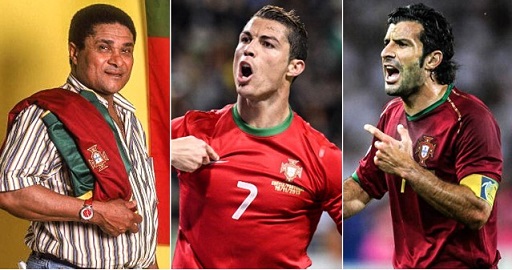 The world of football, a landscape of intense rivalry, legendary heroes, and passionate fans, finds a particular treasure in the vibrant essence of Portuguese football. As we embark on a journey to understand the intricacies of this sport in Portugal, we’ll also shed light on the platform of online betting, with an emphasis on one of its influential players, 1WIN.
The world of football, a landscape of intense rivalry, legendary heroes, and passionate fans, finds a particular treasure in the vibrant essence of Portuguese football. As we embark on a journey to understand the intricacies of this sport in Portugal, we’ll also shed light on the platform of online betting, with an emphasis on one of its influential players, 1WIN.
1win, a reputed online bookmaker, has been recognised for providing an array of betting opportunities to fans. Its commitment to transparency and user-friendly interface, coupled with the thrilling domain of Portuguese football, brings an immersive experience to sports enthusiasts worldwide.
From humble beginnings: the genesis of Portuguese football
Football, introduced to Portugal by Portuguese students returning from England, initially grew in popularity in colleges and clubs across Lisbon and Porto. Futebol Clube do Porto, Sporting Clube de Portugal, and Sport Lisboa e Benfica rapidly emerged as the frontrunners, creating a triumvirate that continues to dominate the Portuguese Primeira Liga to this day.
- FC Porto: Known as the ‘Dragões’ (Dragons), Porto have won the Primeira Liga 30 times.
- Sporting Clube de Portugal: Home to the ‘Leões’ (Lions), Sporting have an acclaimed youth academy, fostering talents like Cristiano Ronaldo and Luís Figo.
- Benfica: The ‘Águias’ (Eagles) are Portugal’s most popular club and are known for their passionate fanbase, contributing significantly to the nation’s football culture.
Achieving international acclaim: Portugal’s football ascendancy
The year 1966 marked a historic milestone in Portuguese football, with the national team’s splendid performance at the World Cup, finishing in third place. Eusébio da Silva Ferreira, commonly known as Eusébio, was top scorer at the tournament with nine goals, securing his legacy as one of football’s greatest ever. Portugal’s consistent performances in European Championships and World Cups this century as seem them become a major force to be reckoned with on the international stage.
 Portugal’s modern football era: the emergence of new legends
Portugal’s modern football era: the emergence of new legends
Modern Portuguese football has seen the emergence of superstars like Cristiano Ronaldo and Luís Figo, who have cemented Portugal’s place in global football. Their exceptional skills and tireless dedication continue to inspire the next generation of footballers.
The role of 1win in the evolution of Portuguese football
With the rise of online sports betting, platforms like 1win have provided fans with an interactive medium to connect with the sport. 1win’s football betting options, including odds on the Primeira Liga, the Portuguese national team, and even individual player performances, make it an ideal choice for both novice bettors and seasoned punters.
The impact of Portuguese coaches on global football
Portuguese football has not only gifted the world with exceptional players, but it has also produced a host of proficient coaches who have greatly influenced the sport. From the strategic genius of José Mourinho, known as “The Special One” for his extraordinary tactics and psychological prowess, to André Villas-Boas’ innovative approaches, Portuguese coaches have imparted a considerable impact on global football.
José Mourinho: Having managed several top European clubs, including Porto, Chelsea, Inter Milan, Real Madrid, and Manchester United, Mourinho’s brilliance is recognised globally. His teams are known for their defensive solidity and ability to win crunch matches, earning him numerous trophies.
André Villas-Boas: Starting as a scout for Mourinho, Villas-Boas quickly rose through the ranks to become a respected manager in his own right. His stints at Porto, Chelsea, Tottenham, Zenit St. Petersburg and Marseille have showcased his tactical acumen and ability to adapt to varying football cultures.
The evolution of stadiums and infrastructure in Portuguese football
Portuguese football has also witnessed significant advancements in infrastructure. The Estádio da Luz (Stadium of Light) in Lisbon, home of Benfica, and Estádio do Dragão (Dragon Stadium) in Porto, home of FC Porto, are examples of world-class stadiums that offer thrilling atmospheres for football matches.
Estádio da Luz: This stadium, with a seating capacity of over 65,000, is the largest in Portugal. It hosted several matches during Euro 2004, including the final, and is a symbol of Portugal’s passion for football.
Estádio do Dragão: Opened in 2003, this state-of-the-art stadium can seat over 50,000 spectators. It has hosted numerous high-profile matches, including the inaugural match of Euro 2004, illustrating Portugal’s commitment to providing world-class facilities.
The quality of infrastructure has not only contributed to Portugal’s ability to host major international tournaments but also improved the overall fan experience, making Portuguese football a treat for spectators worldwide.
 Conclusion: Portuguese football - a mosaic of passion and talent
Conclusion: Portuguese football - a mosaic of passion and talent
With its rich history, abundance of talent, and the indomitable spirit of its fans, Portuguese football holds a unique spot in the football world. As you further delve into this thrilling universe, make sure to explore the wealth of information available on Portuguese football’s Wikipedia page.
Frequently asked questions
1. Who are some notable Portuguese footballers?
- Eusébio, Luís Figo and Cristiano Ronaldo are among the most celebrated.
2. What is the top-tier football league in Portugal?
- The Primeira Liga is the highest level of football competition in Portugal.
3. What role does 1win play in the Portuguese football scene?
- 1win is a recognised online bookmaker, providing diverse betting opportunities linked to Portuguese football.
4. Who are the dominant teams in Portuguese football?
- FC Porto, Sporting Clube de Portugal, and Benfica are the leading clubs in Portuguese football.
5. Has Portugal’s national team won any major international tournaments?
- Yes, Portugal won the European Championship in 2016 and the UEFA Nations League in 2019.

